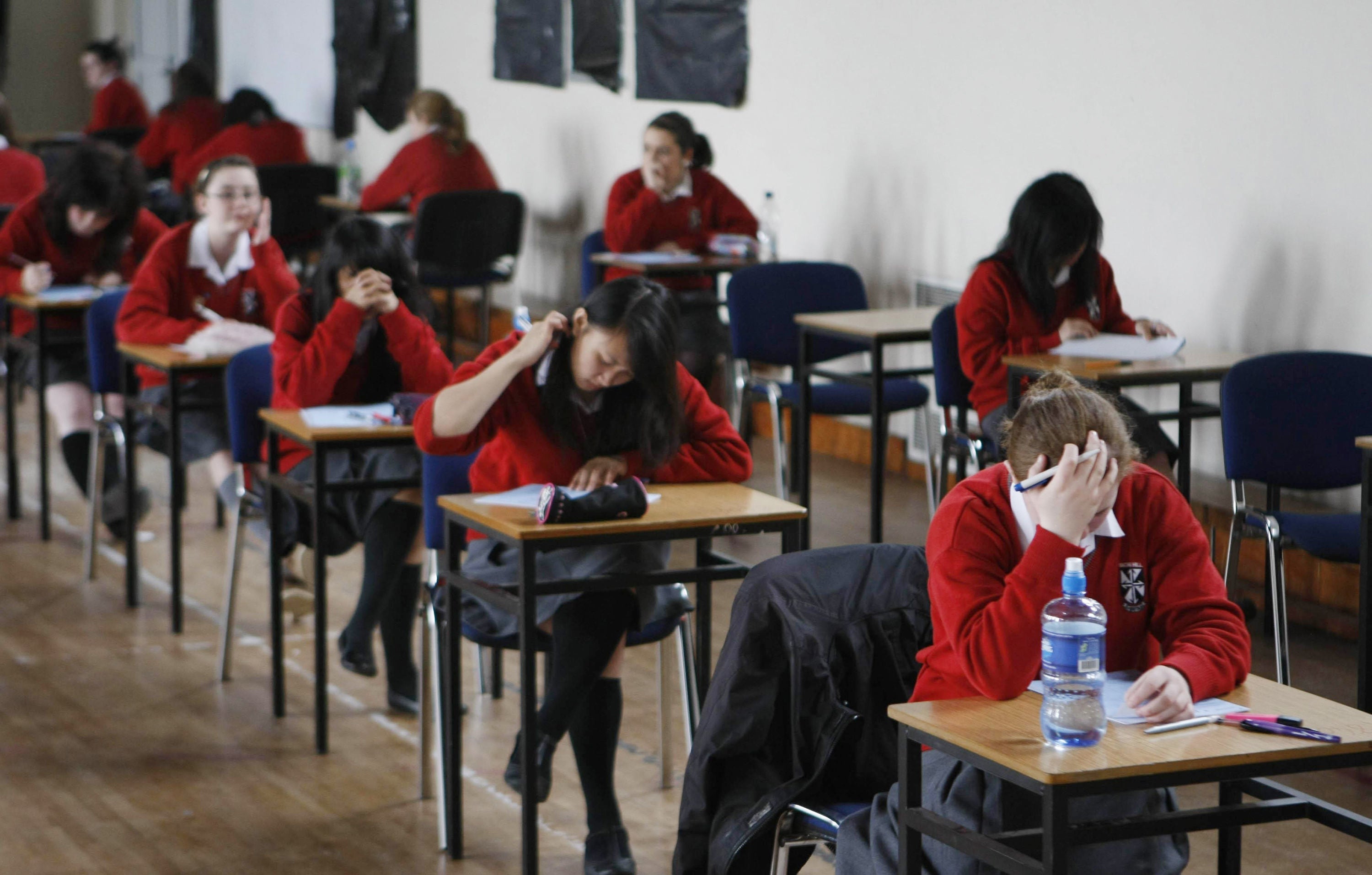Parents could join campaign to scrap GCSEs ‘if even more top grades awarded’
Professor Alan Smithers said he expects more top grades will be awarded to pupils on Thursday

Your support helps us to tell the story
From reproductive rights to climate change to Big Tech, The Independent is on the ground when the story is developing. Whether it's investigating the financials of Elon Musk's pro-Trump PAC or producing our latest documentary, 'The A Word', which shines a light on the American women fighting for reproductive rights, we know how important it is to parse out the facts from the messaging.
At such a critical moment in US history, we need reporters on the ground. Your donation allows us to keep sending journalists to speak to both sides of the story.
The Independent is trusted by Americans across the entire political spectrum. And unlike many other quality news outlets, we choose not to lock Americans out of our reporting and analysis with paywalls. We believe quality journalism should be available to everyone, paid for by those who can afford it.
Your support makes all the difference.Parents could join a campaign to scrap GCSE exams if further top grades are awarded this year, an expert has suggested.
Hundreds of thousands of students are set to find out their grades on Thursday after summer exams were cancelled for the second year in a row due because of the pandemic.
A new report from the Centre for Education and Employment Research (CEER) says that it will be hard for ministers to “put the genie back into the bottle” and go ahead with exams again after two successive years of grades by teacher assessment.
Professor Alan Smithers, director at CEER, at the University of Buckingham, has suggested more top grades could be awarded to GCSE pupils this summer.
He said: “Plentiful top grades make pupils and parents happy, but they are less helpful for those using the grades for admission to the next stage of education or recruitment to employment.”
Prof Smithers added: “With another bumper crop of top GCSE grades, the future of exams at age 16 is likely to come under threat.
“There is already a pressure group to ditch them and if parents get a liking for plentiful top grades they may become involved.”
Last summer, the fiasco around grading led to thousands of A-level students having their results downgraded from school estimates by a controversial algorithm before Ofqual announced a rapid U-turn after fury from pupils, parents and teachers.
The proportion of GCSE entries awarded top grades rose to a record high last year after grades were allowed to be based on teachers’ assessments, if they were higher than the moderated grades given.
On Tuesday, the proportion of A-level entries awarded top grades reached an all-time high after exams were cancelled, with 44.8 per cent achieving an A or above.
This led to criticism of the top marks, with Tory MP Robert Halfon, chair of the Commons Education Committee, saying that grade inflation is “baked” into exam results due to the pandemic.
Further reports suggested the government was in discussions to about how to deal with the issue of grade inflation, including a possible plan to ditch traditional A-level grades.
Prof Smithers has suggested that teachers have “put more emphasis on rewarding” students for their efforts, “rather than on the information the qualifications carry into future life”.
The cancellation of the summer exams for a second year in a row has prompted some education leaders and politicians to call on ministers to consider reforming GCSEs in the post-Covid years.
Prof Smithers added: “Schools and teachers do not like GCSE exams because they are judged on their pupils’ results in league tables and inspectors’ reports. With teacher assessment, they are in control.
“Independent schools do not like GCSE exams either because, with the great majority of their pupils staying on until 18, they interrupt the smooth progression to A-level.
“Many educationists do not want exams at age 16 because they believe they distort the curriculum, are harmful to adolescent wellbeing, and are biased against the disadvantaged. It’ll be quite a task for the government to put the genie back into the bottle.”
Last year, 26.2 per cent of UK GCSE entries were awarded one of the three top grades, compared to 20.8 per cent in 2019, the last year that exams were sat before the pandemic.
Additional reporting by PA
Join our commenting forum
Join thought-provoking conversations, follow other Independent readers and see their replies
Comments